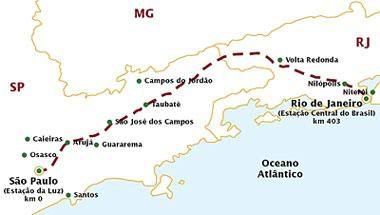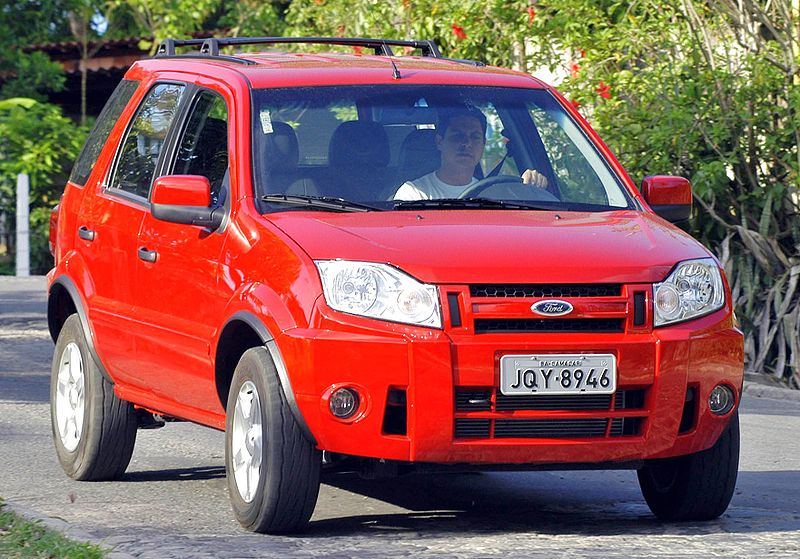Thanks to Stefan for sending me an interesting newsletter from Forbes -
Latin Stock Investing. Today's issue asked if a Brazilian bubble is about to burst.
According to Rudy Martin, editor of Latin Stock Investing, Brazil still has tremendous upside. He lists five good reasons for his optimism:
1.
Low Earnings Multiples. "The average U.S. stock sells at 17 times this year's and 15 times next year's earnings. In contrast, Brazilian stocks are selling at 12.5 times earnings, or 20% less than U.S. stocks."
He goes on to mention a utility company that provides water and sewage to 366 municipalities in the State of Sao Paulo. "Its stock trades on the NYSE at less than 8 times earnings!" Deductive reasoning would say that the stock in question is
Sabesp.
2.
Stable Currency. "The strong Brazilian currency is both a blessing and a curse.
The Brazilian real currency rallied by 32% in 2009, the biggest advance among the 16 major currencies."
3.
Reasonable Interest Rates. "Let's put things in relative perspective. Obviously in the U.S., with near-zero interest rates and a highly leveraged consumer base, a double-digit interest rate would choke the economy. But we are talking about Brazil now.
Five years ago, Brazil's central bank benchmark interest rate was 20%! Today rates sit at a low of 8.75%."
4.
High Economic Growth. "The IMF forecasts that Brazil's economy will grow by 4.7% this year and another 3.7% next year. Brazil was one of the economies least hit by the global financial slowdown. With the surge in commodity prices, growth estimates have risen to nearly 6%."
5.
A Shortage of Homes. "Believe it or not, there is a housing shortage in Brazil estimated at 5.8 million, according to Brazil's Minister of Cities. There's money to be made from this real estate gap. Cyrela Brazil Realty, Brazil's largest developer, reported 2009 earnings that were 2.6 times higher than in 2008. Rudy Martin's favorite Brazilian developer, whose shares trade on the New York Stock Exchange, just raised nearly $600 million in a stock offering to take advantage of this growth opportunity. Over the last year, this stock has split and doubled!" My friend Mike, an avid BBB reader, deduced he was talking about
Gafisa.
At any rate, while I don't necessarily disagree with any of his points, there are some things to be aware of.
1. Just because Brazilian stocks have lower earnings estimates than US stocks doesn't mean they will necessarily go higher. US stocks could be overvalued. Or the economic realities of dealing with extreme government regulation could be causing Brazilian companies to be riskier than similar stocks in developed nations.
2. The Brazilian currency is stable this year. But does anyone remember last year, when the Real devalued 35%? Or 8 years ago, before President Lula was elected, when the Real dropped by over 150% in value? 2010 is another election year. Nobody knows anything about
Dilma Rousseff, Lula's hand-picked successor (if she wins), but from all accounts, she appears more "pro-government" than Lula and could potentially align with Evo Morales, Hugo Chavez, and other left-wing Latin American presidents.
This is a big risk to me! This is a small risk, but a risk nonetheless, despite Dilma's promises to continue with the current economic programs.
3. Brazil's interest rates, while still high, are the lowest they have been in years but are expected to rise again. The Central Bank has already warned us that it will happen. If anything greater than a mild economic "crisis" hits again, central bankers could be spooked into raising rates too high, choking growth, scaring away investors looking for high long-term returns, and putting dampers on Brazil's promising economic future. It has happened plenty of times in Brazil.
4. While Brazil expects "high" growth, it continues to muddle along at less than half of China's pace. Any change in commodity or oil prices can have a big impact on Brazil's economy - for good or bad. Another scary fact has to do with the size of the Brazilian government. One out of five Brazilian employees works in the public sector. With the potential for not one, but both presidential candidates proposing larger roles for government, Brazil could quickly see its growth cut to more modest levels.
5. Home shortages are found in Brazil and throughout Africa. They have existed ever since the Portuguese conquered the native Americans and destroyed their tipis 500 years ago. What is causing the different climate today, for the enrichment of large construction companies, is that the government is offering huge public works programs to build over one million houses - while spending 34 billion reais of taxpayer money to do it. How long will the money last? Will the next president eliminate the program in order to avoid a huge deficit? If so, the "home shortage" is in risk of remaining a shortage.


























